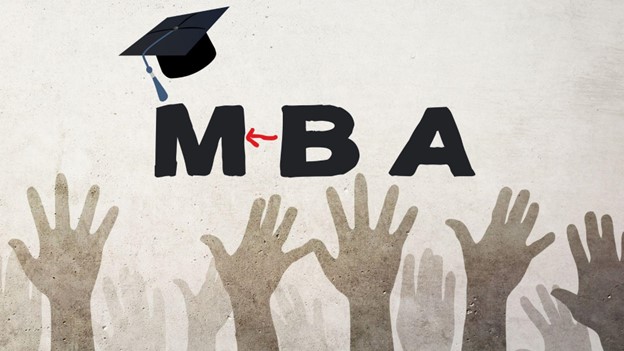One of the most enticing qualifications available today is a Masters of Business Administration (MBA) degree. An MBA after BA broadens the spectrum of career opportunities for the degree holder and facilitates significant career progression.
Several prestigious institutions in our country offer a degree in MBA. These institutions accept students who have graduated in any discipline, be it Commerce, Arts, or Science. In this article, we discuss whether it’s a viable option for Bachelor of Arts graduates to pursue an MBA, the challenges they might encounter, and the various specialisations available in an MBA program.
Unpacking the MBA: What Does It Entail?

The Master of Business Administration (MBA) is an internationally-recognised degree, designed to cultivate the skills required for careers in business and management. It can also be beneficial to students who aspire to pursue a managerial career in the government, public sector, private industry, and other areas.
An MBA degree is a prestigious postgraduate qualification and holds substantial value among the world’s most influential employers. It can amplify the candidate’s salary, enhance their professional reputation, and extend their networking opportunities.
Pursuing an MBA is often seen as a pathway to promotion or a career change, as the candidate gains a comprehensive understanding of key business practices and hone skills in different aspects of business. Prominent MBA specialisations that Arts graduates often go for include:
- Management: Arts graduates often lean towards a Management specialisation in an MBA program due to the flexibility and broad-based knowledge it provides. This specialisation equips students with leadership skills and a deep understanding of business operations, preparing them for roles such as project managers, operations managers, and business consultants.
Arts graduates, especially those with a background in social sciences or humanities, can bring a unique perspective to these roles, employing their abilities in critical thinking, communication, and problem-solving.
- Marketing: Marketing is another popular specialisation among Arts graduates, primarily due to its creative and strategic aspects. It draws on their strong communication skills and understanding of human behaviour.
This specialisation involves studying consumer behaviour, brand management, digital marketing, and market research, providing graduates with the tools to create effective marketing strategies and campaigns. Furthermore, with the rise of digital marketing, Arts graduates with skills in digital content creation and social media management can particularly excel in this specialisation.
- Accounting: While it might seem less intuitive for Arts graduates to choose an Accounting specialisation, it is indeed a viable pathway for those interested in the financial aspects of a business. Arts students who have a flair for numbers or a strong analytical mindset may find this specialisation appealing.
An MBA with a focus on Accounting provides comprehensive knowledge about financial reporting, taxation, auditing, and financial management. This specialisation can lead to roles like Financial Analyst, Auditor, or Financial Consultant, which require a blend of financial expertise and strategic thinking, both of which can be achieved through this specialisation.
Here are some other MBA specialisations that might be relevant to your BA degree are:
- Human Resources Management: For Arts graduates who majored in Psychology, Sociology, or Communications, a specialisation in Human Resources Management could be a perfect fit. This field focuses on managing people within an organisation, making use of skills such as communication, conflict resolution, and understanding human behaviour.
- Entrepreneurship: Arts graduates who are interested in starting their own business might find an MBA specialisation in Entrepreneurship beneficial. This specialisation covers topics such as new venture creation, innovation, and business development.
- Nonprofit Management: For Arts students who studied Social Work, Political Science, or International Relations, a specialisation in Nonprofit Management could be an excellent choice. This specialisation focuses on the unique challenges of managing a nonprofit organisation, including fundraising, volunteer management, and community relations.
- International Business: An International Business specialisation could be relevant for Arts graduates who studied International Relations, Foreign Languages, or Global Studies. This specialisation prepares students for a career in global business, covering areas such as international finance, global marketing, and intercultural communication.
- Arts Management: For students with a Bachelor of Arts in Visual or Performing Arts, specialisation in Arts Management might be an ideal choice. This specialisation combines business acumen with a deep understanding of the arts sector, focusing on areas like event management, fundraising for the arts, and arts policy.
- Media Management: For Arts graduates who have majored in Media Studies, Journalism, or Communication, a specialisation in Media Management could be particularly relevant. This area of study combines business management principles with an understanding of the media landscape, offering insights into areas such as media economics, digital media strategies, and audience analysis.
- Public Policy: For Arts graduates who studied Political Science, International Relations, or Social Work, a specialisation in Public Policy could be a good fit. This specialisation focuses on how to create, implement, and evaluate government policies, making use of skills such as critical thinking, problem-solving, and understanding social issues.
Remember, the relevance of an MBA specialisation to your BA degree depends not only on the content of your undergraduate studies but also on your career aspirations and personal interests.
The MBA is currently the most popular specialised degree program worldwide. There are over 2,500 MBA programs offered internationally, with the majority of them conducted in English.
Comprehending the MBA Syllabus

Most MBA programs incorporate a core curriculum of subjects, such as accounting, economics, marketing, and operations, as well as elective courses enabling participants to pursue their
personal or professional interests.
The Masters in Business Administration (MBA) degree is often considered a natural academic progression for Bachelor of Arts (BA) graduates for several reasons:
- Broadened Perspective: Many BA disciplines, such as economics, sociology, history, or political science, offer students a broad view of society. Similarly, an MBA degree also encourages a wide perspective, but from a business and management standpoint. This aligns well with the mindset developed during a BA degree.
- Interdisciplinary Skills: The BA degree enhances critical thinking, analytical skills, and communication abilities, which are highly valuable in an MBA program. The coursework in an MBA program often involves extensive case studies, group projects, and presentations, tasks where these skills can be applied directly.
- Humanities and Business Intersection: Many of the challenges in the business world are related to human behaviour and societal issues. A background in the humanities or social sciences can provide valuable insights into these areas, making BA graduates well-prepared for tackling such challenges during an MBA.
- Leadership and Management Skills: An MBA program focuses heavily on developing leadership and management skills. BA graduates, with their enhanced understanding of human behaviour and societal structures, can often excel in this domain.
- Creativity and Innovation: Many BA programs encourage creativity and innovative thinking, skills that are in high demand in the business world. An MBA program can help harness these abilities and apply them in a business context.
- Career Advancement: For BA graduates looking to progress into management roles or pivot their careers into the business sector, an MBA can be the ideal platform. It can equip them with the necessary business knowledge and skills, providing a smooth transition into business roles.
In conclusion, while a BA degree and an MBA may seem distinct at first, they can be complementary in many ways. A BA degree can lay the foundation for the managerial, entrepreneurial, and leadership skills that are further enhanced during an MBA program, making it a natural academic progression.
Exploring the Various Types of MBA Programmes

Different types of MBA courses on offer fall under these main categories:
1. General MBA: This is the prime choice for those with limited business experience, typically around three years. It is the ideal option for those looking to expedite their career and enter management roles, corporate strategy or the finance industry.
2. Executive MBA: Typically undertaken by students on a part-time basis, this is suitable for candidates already in senior corporate management positions aspiring to ascend to the boardroom.
3. Specialist MBA: This is an excellent option for those with some managerial experience looking to enter a specific industry or gain promotion in a certain sector.
4. Distance Learning MBA: Also known as an online MBA, this is perfect for candidates who cannot attend university full-time and want to study while managing other personal and professional commitments.
Should You Do MBA after BA?

1. Are you interested in business, economics, and finance?
- a) Yes
- b) No
2. Do you have the financial resources or are you willing to take a student loan to fund your MBA?
- a) Yes
- b) No
3. Do you have strong leadership skills or a desire to develop them?
- a) Yes
- b) No
4. Are you ready to commit at least one to two years for further studies?
- a) Yes
- b) No
5. Are you able to manage high-pressure situations and workload?
- a) Yes
- b) No
6. Do you feel the need to diversify your skills and increase your career options?
- a) Yes
- b) No
7. Are you interested in enhancing your skills in areas such as financial resource management, business development, and employee management?
- a) Yes
- b) No
8. Do you aspire to hold a managerial role in the future?
- a) Yes
- b) No
9. Are you willing to venture out of your comfort zone and explore new opportunities?
- a) Yes
- b) No
10. Do you have long-term career goals that you believe an MBA could help you achieve?
- a) Yes
- b) No
- If you answered ‘Yes’ to 9-10 questions: An MBA program seems to be a good fit for you. It aligns with your interests, skills, financial situation, and career goals.
- If you answered ‘Yes’ to 6-8 questions: You have some of the traits and conditions suitable for an MBA, but there might be areas that you need to reconsider or plan for. Seek guidance or do further research to ensure this is the right path for you.
- If you answered ‘Yes’ to 3-5 questions: You are somewhat unsure about pursuing an MBA. Reflect on your career aspirations and willingness to invest time, money, and effort into this degree. You might want to consider other options as well.
- If you answered ‘Yes’ to less than 3 questions: An MBA might not be the best fit for you at this moment. Explore other opportunities that align better with your current skills, interests, financial condition, and career goals.
What else should you know?

An MBA is not an entry-level business qualification. It is typically undertaken by professionals who already have a minimum of three years of business and management experience since graduating with their first degree.
To gain admission to the MBA Course of a reputed college, the candidate must achieve a minimum of 60% marks in their bachelor’s degree. Therefore, if the candidate has obtained a good percentage in their Bachelor’s degree, they stand a fair chance of securing admission in their preferred MBA course.
Arts graduates, like all other graduates, will need to clear entrance examinations like the Management Aptitude Test (MAT), Common Admission Test (CAT), Graduate Management Aptitude Test (GMAT) and others. In conclusion, it’s evident that an MBA program can be pursued by an Arts graduate as long as they meet the essential criteria of having work experience of at least two to three years, a good GMAT or GRE score, and a good Undergraduate degree with a satisfactory GPA. If the candidate fulfils these criteria and has a keen interest in business administration, an MBA could be the ideal career choice for them.





